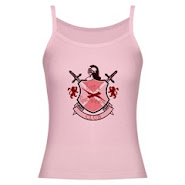Well I said this blog would contain random musings about relationships, break-ups, divorce, etc., so here's a random musing...
In Part 1 of this post, I disclosed that I had previously been a bridesmaid in 8 weddings, 6 of which ended in divorce. That's about a 75% divorce rate...Sheesh! That 's simply awful, but the topic for another post.
I remember, being admonished that the role of the bridal party is to stand as witnesses before God to the covenant relationship. I was also instructed that if either of the parties (bride/groom) were found violating their covenant relationship (the marriage) that I had the right to tell them they were wrong and remind them of the vows they had taken before God and man alike. Well, I held up my end of the bargain...yet they still divorced.
Let's take a trip down memory lane...
Here's how the whole bridesmaids role began (per Wikipedia):
A bridesmaid is a girl or young woman who attends to the bride during or after a wedding or marriage ceremony. Traditionally, bridesmaids were chosen from unwed young women of marriageable age. The principal bridesmaid is called the maid of honor (or matron of honor if she is married). A bridesmaid is often a close friend or sister. Often there is more than one bridesmaid: in modern times the bride chooses how many to have. Historically, no person of status went out unattended, and the size of the retinue was closely calculated to be appropriate to the status of the personage. (Okay, we knew that!)
In early Roman times, bridesmaids formed a kind of bridal infantry as they accompanied the bride to the groom's village. This "protective shield" of similarly outfitted bridesmaids was supposed to intervene if any wayward thugs or vengeful suitors tried to hurt the bride or steal her dowry. (Thank goodness for the police...unless of course you are Rodney King.)
However, the Western bridesmaid tradition seems to have originated from later Roman law, which required ten witnesses at a wedding in order to outsmart evil spirits believed to attend marriage ceremonies. The bridesmaids and ushers dressed in identical clothing to the bride and groom, so that the evil spirits would not know who was getting married. Even as late as 19th century England, there was a belief that ill-wishers could administer curses and taint the wedding. (What about the evil people who seek after and enjoy relationships with married men and women? How do we ward them off?)
Why did you become a bridesmaid? Even better, would you do it again?
Saturday, January 12, 2008
Bridesmaid Mania - What's The Point? Part 2
Labels:
bride,
bridesmaid,
marriage,
relationships,
wedding ceremony,
wedding party,
wife
Subscribe to:
Post Comments (Atom)











No comments:
Post a Comment